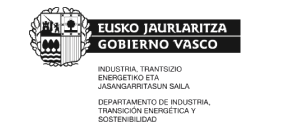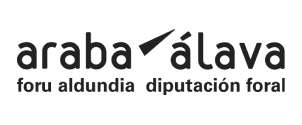Original image: Jérémy Barande / Ecole polytechnique Université Paris-Saclay / CC BY-SA 2.0
In 1997, I started my first year at Universitat Pompeu Fabra in Barcelona. I was just a teenager from a small town. I vividly remember my first class: Introduction to Economics. I also remember wandering around, a little lost, in search of my first economics textbook. What I didn’t know then was that this book would not only accompany me throughout the course, but that its author, Joseph E. Stiglitz, would remain a reference in my life almost 30 years later. And I certainly couldn’t have imagined that one day, I’d be seeing him speak in person at the university where I now work.
A lot has happened since those teenage years. One of those things is that Stiglitz was awarded the Nobel Prize in 2001. Beyond the enormous recognition, what is truly interesting is how, through his books and ideas, we have been able to follow the evolution of economic thought over these decades.
That year, 2001, Stiglitz received the Nobel Prize in Economics for his analysis of markets with asymmetric information. Essentially, he proved that the old assumption that competitive markets are always efficient was wrong—especially when information is imperfect, as is often the case. Interestingly, at that very moment, I was experiencing the practical consequences of that theory firsthand. In 2001, I had already graduated with a degree in economics and was working at Andersen. Then came the Enron scandal: Andersen disappeared, and the auditing market went from being the Big Five to the Big Four. Regulations and legal frameworks tightened. It became painfully clear that imperfect—and often biased—information could have devastating effects on the real economy.
But Stiglitz not only received the highest academic recognition in economics—he had also witnessed firsthand the consequences of blindly trusting an ideological framework unsupported by reality. With the experience he had gained as an advisor to the Clinton Administration and as Chief Economist at the World Bank, he published the controversial book Globalization and Its Discontents in 2002. It was a powerful critique of the austerity measures and one-size-fits-all policies imposed on developing countries, all rooted in free-market dogma. The backlash was harsh, but Stiglitz never backed down. In fact, in the 2017 edition, he reaffirmed that subsequent events—the Great Recession of 2008, the rise in inequality, and the Euro crisis—only strengthened his case. In that vein, he called strongly for a reform of globalisation to make it fairer, more democratic, and more humane (going “beyond GDP”), warning that otherwise, populism, nationalism, and anti-system movements would continue to grow, threatening global stability and democratic progress.
Stiglitz’s work on the inefficiencies and instabilities caused by neoliberalism is vast and essential. If anyone has managed to synthesise this, it is Stiglitz himself in his latest book, The Road to Freedom: Economics and the Good Society. And he does so by emphasising the same idea over and over again: only through collective action and with a state equipped with smart, effective, and enabling decentralised institutions can we move towards a new economic model—what he calls Progressive Capitalism.
Stiglitz draws a parallel between individual freedom and national sovereignty: both must be able to make their own decisions to be truly free. But his concept of freedom is very different from that defended by Friedman or Hayek. For Stiglitz, freedom is not absolute individualism where “the freedom of the wolf means the death of the sheep,” but a freedom that makes sense when exercised through collective action.
This vision is especially relevant in a world like ours, marked by growing inequalities, a climate crisis of historic proportions, and the rise of individualistic ideologies that fragment societies. In the face of this reality, Stiglitz reminds us that there is another way of doing things. The model he proposes is not an abstract utopia, but a practical application of positive freedom: a framework in which a smart state and the market economy work together to create the conditions that allow citizens to reach their full potential.
Progressive Capitalism proposes that markets and the state are not enemies, but allies. Innovation, private enterprise, cooperation, and intelligent, effective, and enabling public institutions can and must work together to ensure shared prosperity, social justice, and sustainability.
This approach resonates particularly well with the Basque society. We have a solid track record: strong roots, organisational diversity (foundations, associations, clusters, cooperatives alongside private enterprise), and decentralised institutions that have embraced governance as a tool for the common good. Along this path, Orkestra has spent nearly two decades working toward competitiveness for wellbeing, from a framework with a global vision that goes beyond GDP and places quality of life, governance, and sustainability at the heart of the territorial agenda. For this reason, I have no doubt that we can be pioneers on the path Stiglitz proposes. Because yes, we have much to learn, but also much to contribute. And while it may sound utopian, as Eduardo Galeano once said: “Utopia is on the horizon... it makes us walk”.
And now, almost 30 years later, I will have the privilege of hearing Stiglitz speak live at the University of Deusto. It will undoubtedly be a unique opportunity to delve deeper into these ideas directly from their author. And as the conversation doesn’t end there— Martin Wolf, Associate Editor and Chief Economics Commentator at the Financial Times, will join us the following day to reflect on the future of democracy —an issue that Stiglitz himself explores in his book, warning (and quoting Wolf) that the current drift of economic freedom may be undermining political freedom to the point of threatening our democracies.
These events are, ultimately, an opportunity to further enrich the economic debate and reinforce the role of the university in particular, and of society in general, as a space for collective reflection, open to knowledge and committed to the common good. Moreover, I am certain this experience will remain with me as yet another source of inspiration to keep walking toward that utopia that so many of us share.

Carme Vallverdú
Carme Vallverdú holds a Degree in Economics from the Pompeu Fabra University and specialized in Quantitative Methods. Her professional career has developed in the field of Auditing and Finance, completing a Masters in Management of Paperwork Control at the EADA (Barcelona Business School) and a Master's degree in Economic Analysis from the UOC (Universitat Oberta de Catalunya)..













